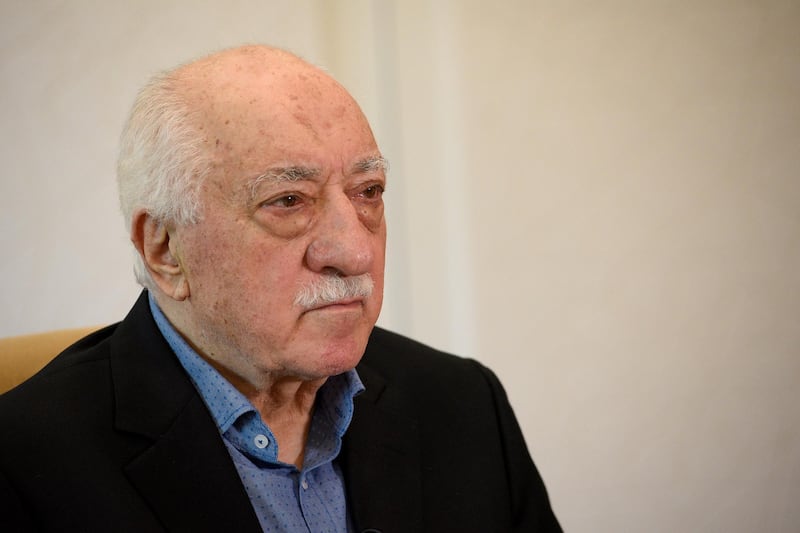Prosecutors in Turkey on Tuesday issued arrest warrants for 150 military personnel in the latest wave of a crackdown on supporters of the group said to be behind a 2016 coup attempt.
An investigation led by the chief prosecutor’s office in the western city of Izmir saw warrants issued for 133 serving and former soldiers allegedly linked to the Gulenist movement, which Ankara blames for the failed coup.
The movement is labelled the Fethullah Terror Organisation, or Feto, after its leader US-based cleric Fethullah Gulen.
State-run Anadolu news agency reported that 82 of the suspects were serving soldiers, including officers up to the rank of colonel. Others included 14 former military cadets.
At least 101 had been arrested in simultaneous raids across 45 of Turkey’s 81 provinces, the prosecutor’s office said, with police hunting for the remaining 32.
The accused are said to have been in contact with “secret imams”, or senior figures within the Gulen movement, by telephone.
Separately, prosecutors in Ankara issued warrants for 10 serving and seven former members of the air force over similar allegations. Anadolu said 11 suspects had been detained.
Since the coup attempt, during which 251 people died, around 77,000 alleged Gulen supporters have been imprisoned, while 150,000 people, mainly teachers, civil servants, members of the judiciary, police officers and military staff, have been dismissed from their jobs by government decree.
Last year, the Ministry of Justice said Turkey’s jails held nearly 49,000 prisoners for terror-related offences. More than 34,000 were accused Gulenists while around 10,300 were accused of ties to the Kurdistan Workers’ Party, or PKK, and approximately 1,300 linked to ISIS.
The scale of the post-coup crackdown has led to widespread criticism that the government has targeted people with limited ties to the Gulenist movement as well as other political opponents.
Meanwhile, the opposition has complained that the purges have left members of the ruling party untouched while focusing on ordinary people.
More than three years after the failed putsch, mass arrests of alleged Gulenists remain a regular occurrence in Turkey. Last week, warrants were issued for 53 former and serving air force staff and 121 people accused of leaking details of the civil service exam in 2011 as part of the movement’s drive to infiltrate its members into state institutions.
Mr Gulen, who has lived in Pennsylvania since 1999, has denied any involvement in the failed coup.
He was once allied to President Recep Tayyip Erdogan’s Justice and Development Party, using a global network of schools, businesses, charities and media outlets — as well as thousands of followers working for the Turkish state — to back the government.
Divisions emerged in the early 2010s, with a 2013 corruption investigation by Gulenist police and prosecutors targeting Mr Erdogan’s inner circle, leading to a crackdown on Gulenists in the police, judiciary and media. The group was formally declared a terrorist organisation two months before the coup attempt.
Ankara has repeatedly attempted to have Mr Gulen, 78, extradited from the US. Washington’s refusal has been one of several disputes that have contributed to a deterioration in Turkey-US relations.






